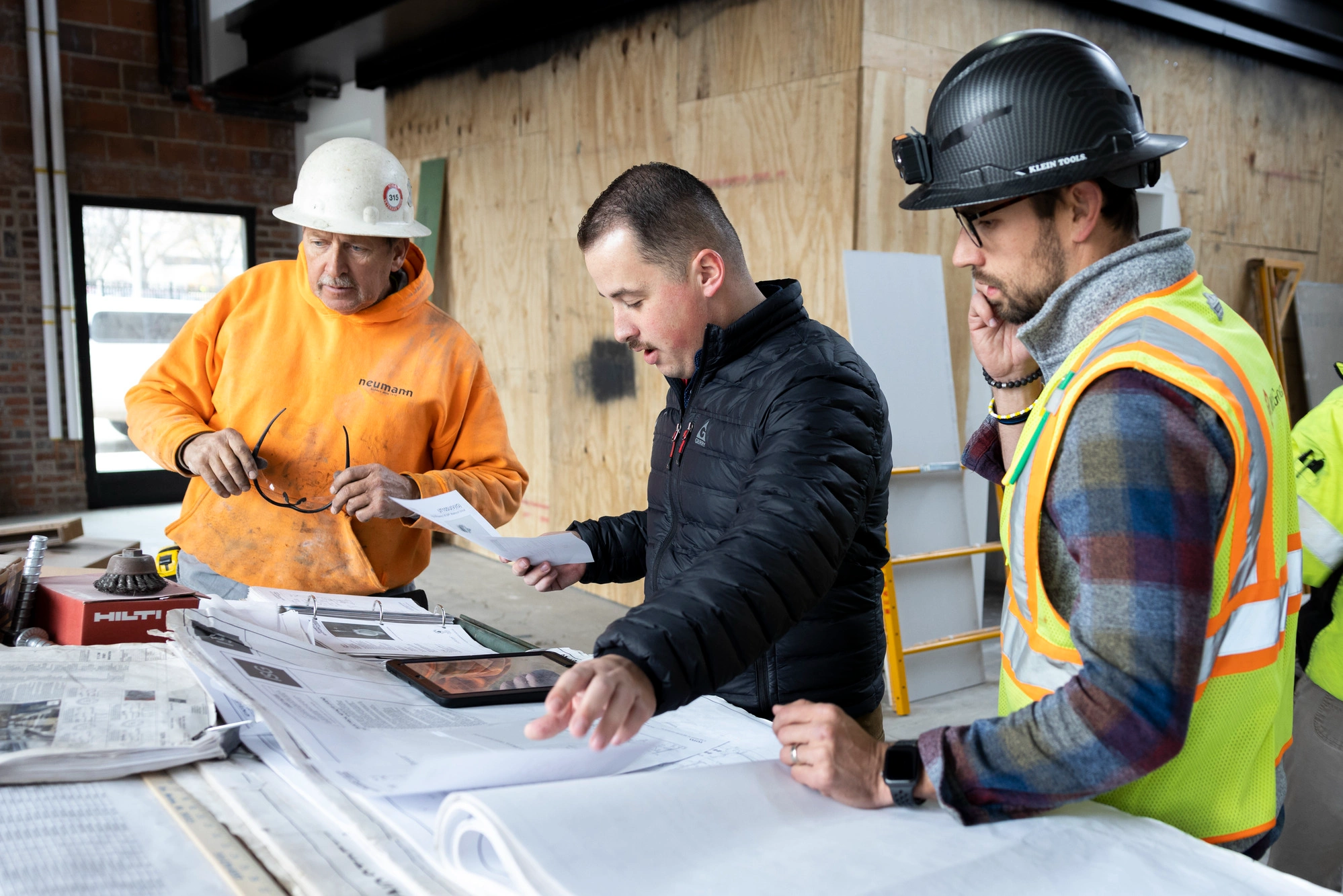Water Quality Relies on Building Quality Relationships
ISG oversees the full spectrum of water management planning, from complex multi-county, multi-agency efforts to centralized issues impacting a single landowner’s property. In each scenario, quality relationships influence action taken on water quality solutions. ISG water resource professionals cultivate common ground to ensure a resilient future is achieved for stakeholders and our natural resources.
Building Relationships with Large, Diverse Groups
ISG’s priority when conducting water resource planning with large stakeholder groups is to focus the group’s efforts on the same goals. The first step in achieving this is to increase trust and information sharing by establishing ground rules for how to identify priorities and make decisions as a team. Large stakeholder groups can be broken out into smaller sub-committees based on resource (e.g., groundwater, surface water, habitat, outreach/education) and empowered to report out on findings, while the larger group reviews and provides feedback. This smaller sub-committee format results in meaningful relationship building and an efficient engagement process.
Maximizing technology such as OneDrive, Microsoft Teams, and Zoom, ISG uses a hybrid of in-person and virtual meetings to reduce meeting fatigue, increase collaboration, and garner a broader pool of representation in each watershed. Dynamic engagement tools, such as the virtual open house created for the North Cannon River Watershed Management Organization, allowed people to participate at their convenience. This flexible format is more inclusive and expands the possibilities to forge new relationships.
Targeted Water Resource Planning
Often times, ISG is approached by a group of passionate citizens who are centrally focused on one water resource or one problem within that resource. Acting as a guide, ISG breaks down each multi-layered phase of water resource planning into manageable steps to create a clear plan of action. An example of this citizen-led project relationship was seen in ISG’s work with the Lake Washington Improvement Association. This group of residents were concerned about the water quality of their lake. Through an investment of time, energy, and resources, ISG collaborated with the group to develop the Lake Washington Water Quality Assessment, a comprehensive document that outlines existing conditions and the most cost-effective Best Management Practices to reduce phosphorus and improve the quality of their beloved lake.
One Landowner at a Time
At the individual level, ISG meets with landowners one-on-one to problem solve their specific water resource issues. When faced with infrastructure failure and persistent flooding, ISG uses an iterative design process to offer cost-effective solutions that benefit the landowner and avoid negatively impacting downstream neighbors.
ISG also builds relationships with individuals to implement watershed planning goals. When asking landowners to participate in voluntary Best Management Practices (BMP), ISG helps landowners understand the long-term benefits to their land and shares examples of project successes. This might include using a parcel of less productive land to implement BMPs—improving water quality for the entire watershed. Through direct, consistent, honest communication, ISG builds lasting relationships that benefit the individual and the environment.
The health of our waterbodies needs repair and there are proven practices that can accomplish that goal. Our hope for significant water quality improvement is through the building of healthy relationships, one individual at a time—working together to create a better world for future generations.
Blog Authors:


Related Articles


The Future of Southern Minnesota Lakes Conference Returns To Inspire Action on Lake Planning, Preservation, and Restoration
ISG is bringing back The Future of Southern Minnesota Lakes Conference for its fourth year from March 6–7, 2026 creating space for lake association members, environmental professionals, and community leaders dedicated to preserving and restoring Southern Minnesota lakes.




.webp)
.webp)



.webp)

.webp)
_webfull.webp)
.webp)